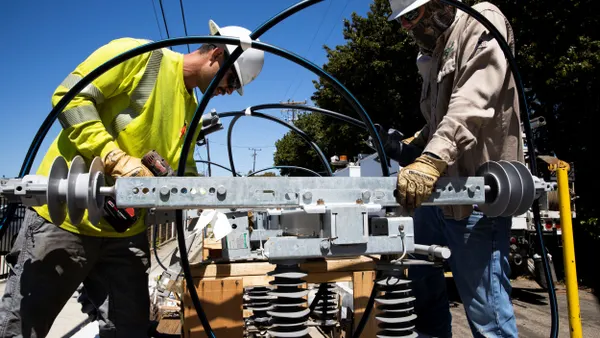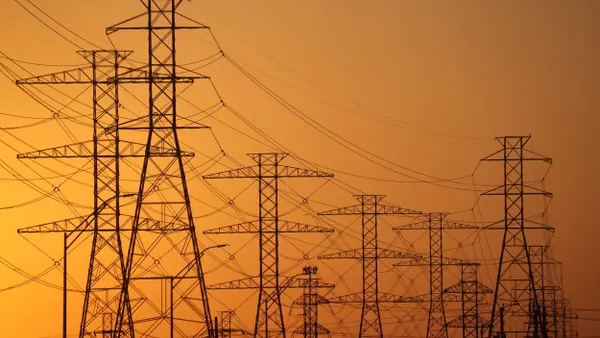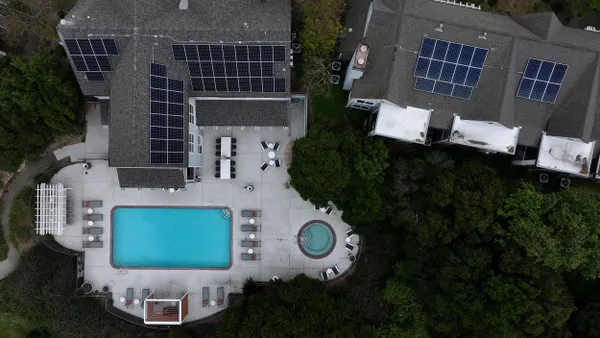Dive Brief:
- ChargePoint and the National Association of Truck Stop Owners (NATSO) on Feb. 6 announced a $1 billion initiative to deploy electric vehicle (EV) charging infrastructure at more than 4,000 travel plazas and fuel stops in the United States, in an effort to facilitate greater use of emissions-free vehicles along highways and in rural areas.
- Separately, on the same day, a pair of U.S. Representatives unveiled the Electric Vehicle Freedom Act to establish a "comprehensive, nationwide" network of high-speed EV chargers within five years. The legislation would task the U.S. Department of Transportation and the U.S. Department of Energy with developing the charging network, and would require a plan to be submitted to Congress by 2025.
- A separate bill introduced Feb. 5, the Electric Vehicles for Underserved Communities Act, seeks to boost EV charger access in low-income communities and communities of color.
Dive Insight:
The United States exceeded 1 million electric vehicles on its roads in 2018, but experts say reaching far-loftier projections will require rapid expansion of charging ports across all areas of the nation and enabling long-distance travel across the nation's highways.
"We are embarking on a major shift in transportation, with electrification poised to fundamentally transform mobility," ChargePoint President and CEO Pasquale Romano said in a statement. The collaboration with NATSO is "vital for the rapid expansion of charging around the country and will ensure that the United States remains at the forefront of the EV revolution," he said.
According to the International Energy Agency, the projected share of EVs in 2030 among passenger vehicles in Canada and the United States is over 30%.
ChargePoint and NATSO said their plan will help link U.S. drivers to a growing charging network in all 50 states and the District of Columbia, and significantly increase access as EV adoption accelerates.
"The effort will not only enable long distance electric travel along major routes but will also provide vital access to charging in rural communities," the companies said.
Separately, two pieces of legislation introduced in the U.S. House by Democratic Representatives would put some responsibility for growing charger access on the federal government.
The Electric Vehicle Freedom Act, introduced by Reps. Andy Levin, D-Mich., and Alexandria Ocasio-Cortez, D-N.Y., would ensure chargers are built along the country's highways, promote interoperability between vehicles and charging networks, guarantee that payment methods are secure, and require all charging stations to be compliant with the Americans with Disabilities Act.
Ocasio-Cortez called the proposal "a necessary step in reducing the barriers that have held back greater electric vehicles adoption."
The legislation has support from a broad group of advocates, including the Union of Concerned Scientists, Sierra Club, Earthjustice, Utility Workers Union of America, United Steelworkers, United Automobile Workers and the Center for Transportation and the Environment.
Legislation introduced by Rep. Yvette Clarke, D-N.Y., to increase access to charging stations in low-income communities, also has the support of the Sierra Club.
"If we are going to successfully make the transition to electric vehicles in the next 30 years, then electric vehicles and their charging infrastructure need to become highly accessible to all communities and fast," Clarke said in a statement. But she added that in her own Brooklyn neighborhood and other cities, "I struggle to see a sufficient electric-charging infrastructure, especially in low-income communities and communities of color."














